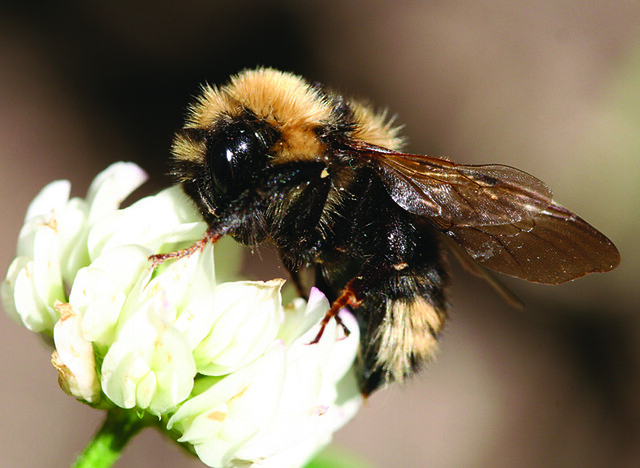by Scott Elliott, USDA National Institute of Food and Agriculture (NIFA)
June 18, 2019

Researchers have been working for well over a decade to enhance the health of pollinators and now beekeepers, citizen scientists, and anyone interested in pollinator health can join in using a new online tool, Beescape.
A multi-institutional research team led by Penn State University developed Beescape to help beekeepers understand what resources and risks bees may encounter when they leave the hive. The team includes Dickinson College, Purdue University, University of Illinois at Urbana-Champaign, University of Wisconsin, University of Minnesota, University of California – Davis, and USDA’s Agricultural Research Service. USDA’s National Institute of Food and Agriculture provided funding for this project.
“Bees forage over long distances to gather nectar and pollen, which they use to feed their offspring and, for social bees, to support their colony,” said Christina Grozinger, director for the Penn State’s Center for Pollinator Research. “It is nearly impossible for a beekeeper, or someone who is trying to support wild bees in their gardens or farms, to know what bees will encounter during these journeys.”
With its online format, Beescape allows a user to select a specific location and get information about the surrounding area, such as the amount of floral resources, the amount and type of applied insecticide, and the availability of nesting habitat for wild bees.
“Knowledge is everything! If you realize you are in an area that has high predicted levels of pesticide use, you can learn more about these risks and when bees might be impacted by talking with your local growers,” she said.
Beekeepers can help the Beescape Team by providing data on the health of their bees through an online questionnaire. The team will use this information to see how different landscape scores sedative-meds health, and then develop models for Beescape that are more precise.
Although Beescape currently focuses on bees, its landscape quality indices broadly relate to the health of insect and animal populations, since flowering plants and pollinators form a core of Earth’s ecosystems. “We hope this information will allow people to better explore land use patterns in their own communities and take steps to improve them,” Grozinger said.
Bees can travel up to 5 km from their colony to forage. Do you know the landscape that will promote your bees’ health? Beescape may help.
NIFA invests in and advances agricultural research, education, and extension and seeks to make transformative discoveries that solve societal challenges.
